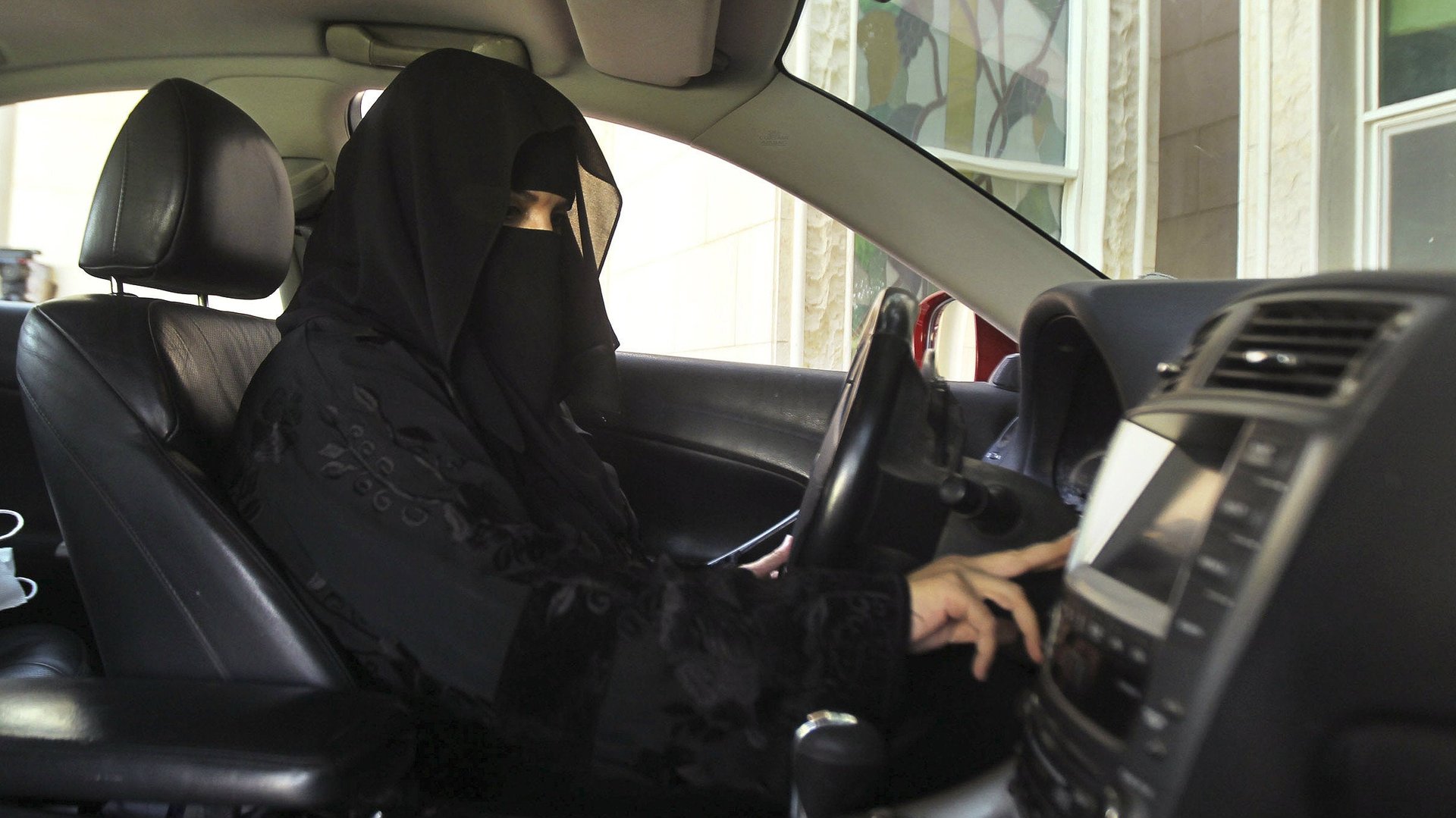The Saudi king’s decree allowing women to drive is as much about money as human rights
King Salman of Saudi Arabia has issued a decree ordering women be allowed to obtain driver’s licenses, according to state government’s news agency (link in Arabic). Prince Khalid bin Salman, the Saudi ambassador to the US, confirmed at a press conference at the embassy in Washington, DC on Tuesday (Sept. 26) that Saudi women will be able to drive alone and won’t need their guardian’s permission to get a driver’s license. The Interior Ministry will need to make a decision on whether women can be professional drivers, he added.


King Salman of Saudi Arabia has issued a decree ordering women be allowed to obtain driver’s licenses, according to state government’s news agency (link in Arabic). Prince Khalid bin Salman, the Saudi ambassador to the US, confirmed at a press conference at the embassy in Washington, DC on Tuesday (Sept. 26) that Saudi women will be able to drive alone and won’t need their guardian’s permission to get a driver’s license. The Interior Ministry will need to make a decision on whether women can be professional drivers, he added.
Saudi Arabia is the only country in the world that bans women from driving, so this is certainly a step in the right direction for human rights in the country, but there are a few caveats to the decree. For one, it ordered the formation of a ministerial body to decide on the issue within 30 days and implement the order by June 2018; in other words, it doesn’t instantly or outrightly allow women to drive. Second, it also mandated any change in the law must “apply and adhere to the necessary Sharia standards,” though didn’t go into specifics of what that might entail.
A majority of members of the Council of Senior Scholars, the county’s highest religious body, whose members are appointed by the king, has approved the new order, according to the decree.
Conditions might be improving for women in Saudi Arabia, but the country is still ranked 141 out of 144 countries for women’s equality, according to the World Economic Forum’s Global Gender Gap Report (Iceland is 1st and the US is 45th). Saudi Arabian law still requires all women to have a male guardian (usually a father, brother, or husband), who make legal and financial decisions on their behalf. Saudi Arabia women can’t travel, conduct official business, rent an apartment, get married or divorced, or undergo certain medical procedures without the consent of their guardian.
Saudi Vision 2030
While this is clearly a win for women’s rights, the motivation behind the decree might not be as humanitarian in nature as it appears.
Reliant on oil exports for 90% of its state budget, Saudi Arabia is now trying to diversify its economy and attract outside investment as part its Saudi Vision 2030 plan. Crown prince Mohammed bin Salman has been widely credited for the country’s new focus on modernization; he announced the plan, which calls for investing billions of dollars in non-oil businesses, especially technology, in April 2016.
But to attract top investment and talent from around the world, you need to welcome a diverse, global community.
Saudi Arabia’s repressive culture will be a barrier its efforts to modernize and diversify its economy, Goldman Sachs CEO Lloyd Blankfein suggested at the Bloomberg Global Business Forum last week, before the new order was issued. “No one has done this without attracting a lot of expats,” he said. “You have to make it attractive.” (Saudi Arabia does have a large share of foreign labor—but is trying to reduce that to create jobs for Saudis.)
In this context, it’s reasonable to interpret the loosening of oppressive restrictions on women in Saudi Arabia as part of the country’s larger effort to attract outside investment from Silicon Valley and other global tech hubs where VC’s are dubious of the country’s troubling record on women’s rights.
In fact, the decree itself suggests this interpretation: The decree (translated from Arabic to English via Google) says that the decision was made taking into consideration “the negative consequences of not allowing women to drive the vehicle, and the positive aspects of allowing it.” The ruling is likely to improve the country’s international reputation, and the Saudi government could reap real financial benefit from the positive global press coverage.
The Saudi government has been slowly improving women’s rights in the country over the past few years. In 2011, King Abdullah issued a decree allowing women to vote and run for office starting with the 2015 local elections.
For decades, the US and Saudi Arabia have been close allies thanks largely to their mutual dependency: The US needs Saudi oil and the Saudis need US customers. Now that North America is essentially energy independent, Saudi Arabia’s human rights record will play an increasing role in how global corporations view the conservative country.